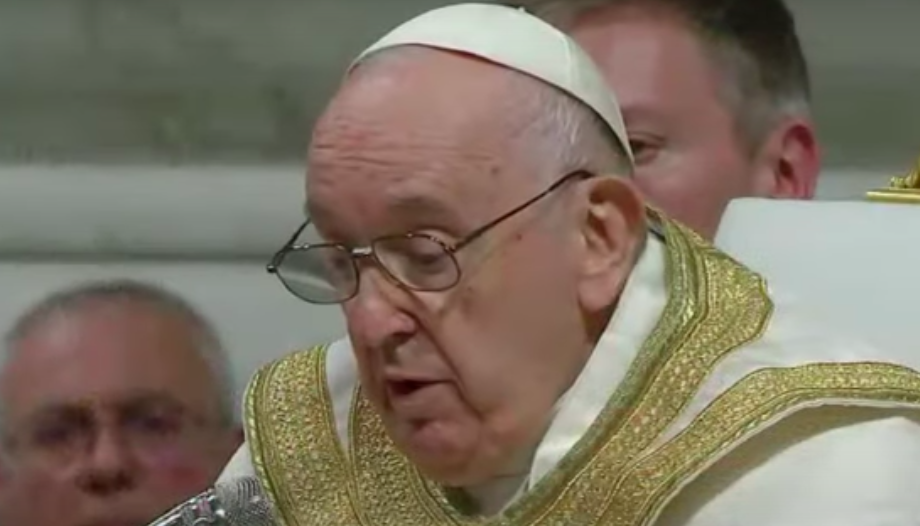On the evening of Saturday, April 8, the Easter Vigil was celebrated. During the ceremony, the Pope Francis’ addressed the faithful in a homily that began by looking at the holy women, who went to visit the tomb, "the place of death". In the face of this, Francis warned that we too are tempted to "think that the joy of the encounter with Jesus belongs to the past" and that in the present we find only "sealed tombs." These include disappointments, bitterness, mistrust and pessimism.
Said the Pope, "we too, if we have been gripped by sorrow, oppressed by sadness, humiliated by sin, embittered by some failure or harassed by some worry, have experienced the bitter taste of weariness and have seen the joy of our heart extinguished."
To all this is added boredom in the face of daily life or despair, and even death. "Thus," Francis pointed out, "because of these or other situations - each one knows his own - our paths stop before the tombs and we remain immobile, weeping and lamenting, alone and powerless".
Christ is risen!
The holy women, who went to that tomb, came out of it full of joy and fear. Christ is risen! The Lord invites everyone to Galilee then, through the testimony of these women. The Pope asked "what does it mean to go to Galilee?
"On the one hand, to leave the enclosure of the cenacle to go to the region inhabited by the Gentiles, to leave the hiding place to open oneself to the mission, to escape from fear to walk towards the future". On the other hand, to go to Galilee, "means to return to the origins", because it was in Galilee where everything began. Therefore, to return there is "to return to the original grace, it is to recover the memory that regenerates hope, the memory of the future, with which we have been marked by the Risen One".
Back to Galilee
In that invitation of Christ, Francis said, is hidden an impulse "to move forward, to come out of our sense of defeat, to roll away the stone of the tombs in which we often enclose our hope, to look with confidence to the future, because Christ is risen and has changed the course of history". And for this we must take a step back, curiously enough, to return "to where our love story with Jesus began, where the first call was.
Christ asks us "to relive that moment, that situation, that experience in which we met the Lord, experienced his love and received a new and luminous look at ourselves, at reality, at the mystery of life. And this is not a return to "an abstract, ideal Jesus, but to the living memory, to the concrete and palpitating memory of our first encounter with him.
The Pope invited everyone to remember our personal Galilee and to walk towards it, that place "where you met Jesus in person, where for you He did not remain a historical figure like others, but became the person of life: not a distant God, but the God who is close to you, who knows you more than anyone else and loves you more than anyone else".
How to concretize this Galilee? As the Pope said, it can be "that Word of God who at a precise moment spoke to you; that strong experience in the Spirit; the greatest joy of forgiveness experienced after that Confession; that intense and unforgettable moment of prayer; that light that was kindled in you and transformed your life", can be an encounter, a pilgrimage... "Each one knows where his Galilee is, each one knows his own place of interior resurrection, the initial, the foundational, the one that changed things".
Pope Francis concluded by saying, "Let us return to Galilee, to the Galilee of our first love: let each of us return to our Galilee, the Galilee of our first encounter, and let us rise to a new life."








